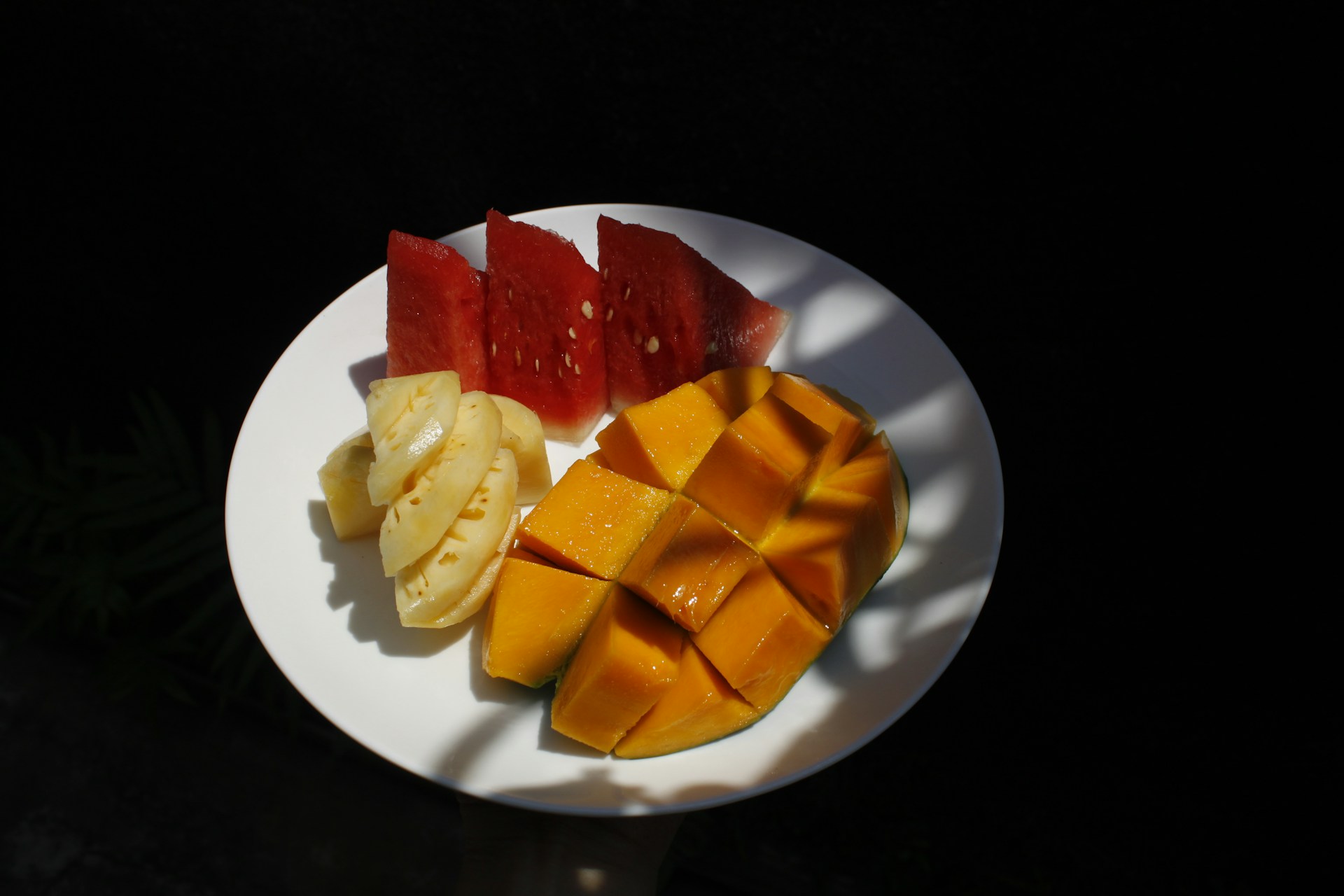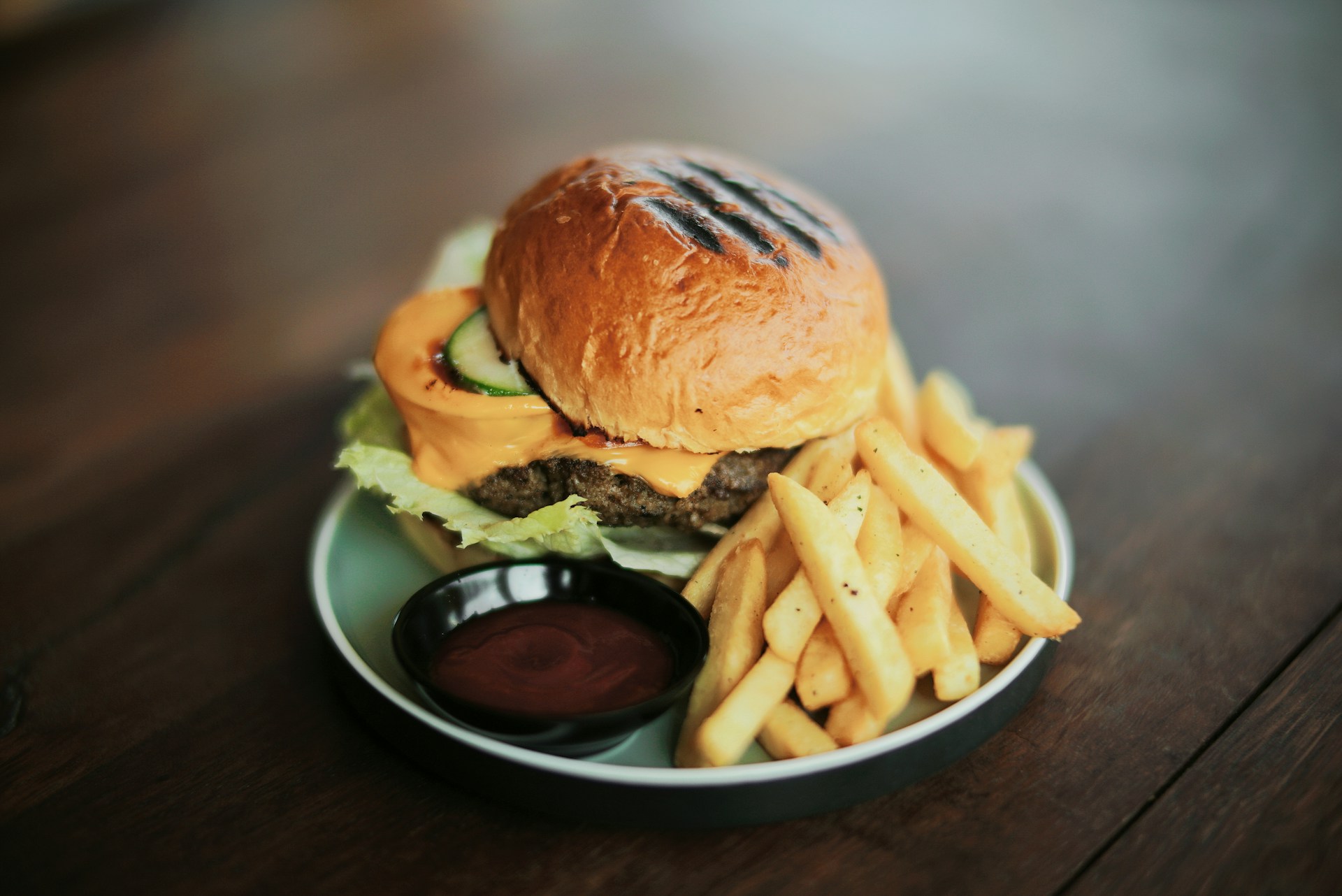Menjelajahi Opini Publik tentang Celebrity Fad Diets: Sentimen Twitter dan Analisis Netnografi
Exploring the Public Opinion on Celebrity Fad Diets: Twitter Sentiment and Netnographic Analysis

Latar Belakang: FAD diet selebriti telah mendapatkan perhatian yang signifikan dalam beberapa tahun terakhir. Diet selebriti sering kali mendapatkan popularitas melalui media sosial, khususnya Twitter, tempat pengguna terlibat dalam diskusi, debat, dan promosi berbagai tren diet.
Tujuan: Untuk menganalisis sentimen masyarakat Indonesia seputar fad diet selebriti di media sosial twitter menggunakan netnografi dari twitter.
Metode: Penelitian ini menggunakan pendekatan metode campuran dengan metode kualitatif dan kuantitatif untuk mengetahui sentimen masyarakat terhadap 5 diet yang dipilih. Data diperoleh melalui snscrape dari GitHub, alat berbasis Python, yang memungkinkan pengguna mengakses berbagai jenis data Twitter seperti profil pengguna, hashtag, live tweet,top tweet, pengguna, tweet tunggal atau berulir, daftar postingan, komunitas, dan tren.
Hasil: Sentimen positif ditemukan lebih umum dibandingkan sentimen negatif selama bertahun-tahun, dan terdapat peningkatan jumlah tweet setiap tahunnya. Puasa intermiten muncul sebagai pola makan yang paling banyak dibicarakan di media sosial, kemungkinan besar karena kemiripannya dengan praktik puasa yang dilakukan oleh penduduk Muslim di Indonesia. Di sisi lain, diet Atkins paling sedikit dibicarakan, mungkin karena sifatnya yang kompleks.
Kesimpulan: Diskusi tentang prevalensi diet ketogenik dan Diet Sangat Rendah Kalori dalam konteks budaya Indonesia dan K-Pop menggarisbawahi perlunya pemahaman yang berbeda tentang diet ini dan potensi implikasinya terhadap kesehatan. Penelitian di masa depan harus mempertimbangkan beragam sumber data, memperluas ukuran sampel, dan berkolaborasi dengan para ahli untuk mendapatkan pemahaman yang lebih komprehensif tentang opini masyarakat tentang diet.
Siwi, A. P. S. S. & Nindya, T. S. Body Image Berhubungan Dengan Indeks Massa Tubuh, tapi Tidak Dengan Waist To Hip Ratio Pada Vegetarian Putri Di Surabaya. Media Gizi Indonesia 11, 113–119 (2018).
Sulistyan, A., Huriyati, E. & Hastuti, J. Distorsi citra tubuh, perilaku makan, dan fad diets pada remaja putri di Yogyakarta. Jurnal Gizi Klinik Indonesia 12, 99–107 (2016).
Preti, A., Usai, A., Miotto, P., Petretto, D. R. & Masala, C. Eating disorders among professional fashion models. Psychiatry Res 159, 86–94 (2008).
Vidianinggar, M., Mahmudiono, T. & Atmaka, D. Fad Diets, Body Image, Nutritional Status, and Nutritional Adequacy of Female Models in Malang City. J Nutr Metab 2021, (2021).
Fairburn, C. G., Doll, H. A., Welch, S. L., Hay, P. J., Davies, B. A. & O’Connor, M. E. Risk Factors for Binge Eating Disorder: A Community-Based, Case-Control Study. Arch Gen Psychiatry 55, 425–432 (1998).
Atmarita, A. (Atmarita). Nutrition Problems in Indonesia. Penelitian Gizi dan Makanan 28, 156425 (2005).
Vankerckhoven, L., Raemen, L., Claes, L., Eggermont, S., Palmeroni, N. & Luyckx, K. Identity Formation, Body Image, and Body-Related Symptoms: Developmental Trajectories and Associations Throughout Adolescence. J Youth Adolesc 52, 651–669 (2023).
Kamps, C. & Berman, S. Body image and identity formation: The role of identity distress. Rev Latinoam Psicol 43, 267–277 (2011).
Hanum, R., Nurhayati, E. & Riani, S. N. Pengaruh Body Dissatisfaction Dan Self-Esteem Dengan Perilaku Diet Mahasiswi Universitas “X” Serta Tinjauan Dalam Islam. Jurnal Psikogenesis 2, 180–190 (2014).
Park, S. Comparison of body composition between fashion models and women in general. J Exerc Nutrition Biochem 21, 22 (2017).
Health Research Funding. Pros and Cons of Fad Diets. (2014). at <https://healthresearchfunding.org/pros-cons-fad-diets/>
Tahreem, A., Rakha, A., Rabail, R., Nazir, A., Socol, C. T., Maerescu, C. M. & Aadil, R. M. Fad Diets: Facts and Fiction. Front Nutr 9, (2022).
Kuchkuntla, A. R., Limketkai, B., Nanda, S., Hurt, R. T. & Mundi, M. S. Fad Diets: Hype or Hope? Curr Nutr Rep 7, 310–323 (2018).
Bilal, M. & Oxentenko, A. S. The Impact of Twitter: Why Should You Get Involved, and Tips and Tricks to Get Started. American Journal of Gastroenterology 115, 1549–1552 (2020).
Ahmed, W., Bath, P. A. & Demartini, G. Using Twitter as a Data Source: An Overview of Ethical, Legal, and Methodological Challenges. 2, 79–107 (2017).
Irawan, A. S., Shahin, B., Wangeshi Njuguna, D., Nellamkuzhi, N. J., Thiện, B. Q., Mahrouseh, N. & Varga, O. Analysis of Content, Social Networks, and Sentiment of Front-of-Pack Nutrition Labeling in the European Union on Twitter. Front Nutr 9, 846730 (2022).
Chen, C., Zhang, J., Chen, X., Xiang, Y. & Zhou, W. 6 million spam tweets: A large ground truth for timely Twitter spam detection. IEEE International Conference on Communications 2015-September, 7065–7070 (2015).
Kim, M. & Lennon, S. J. Content analysis of diet advertisements: A cross-national comparison of Korean and U.S. women’s magazines. Clothing and Textiles Research Journal 24, 345–362 (2006).
Finkler, E., Heymsfield, S. B. & St-Onge, M. P. Rate of weight loss can be predicted by patient characteristics and intervention strategies. J Acad Nutr Diet 112, 75 (2012).
Wardlaw, G. M. & Kessel, M. W. Perspectives in Nutrition. (McGraw-Hill, 2002). at <https://books.google.co.id/books?id=zwxS9LUEU_kC>
Koch, F., Hoffmann, I. & Claupein, E. Types of Nutrition Knowledge, Their Socio-Demographic Determinants and Their Association With Food Consumption: Results of the NEMONIT Study. Front Nutr 8, 630014 (2021).
Brown, J. E. Nutrition. Through the Life Cycle. (Brooks/Cole, 2005).
Ogden, J. The Psychology of Eating: From Healthy to Disordered Behavior. (John Wiley & Sons, 2011).
Arisman. Gizi Dalam Daur Kehidupan. (EGC, 2010).
Berg, F. M. Health Risks Associated With Weight Loss and Obesity Treatment Programs. Journal of Social Issues 55, 277–297 (1999).
Freire, R. Scientific evidence of diets for weight loss: Different macronutrient composition, intermittent fasting, and popular diets. Nutrition 69, (2020).
Farooq, A., Chamari, K., Sayegh, S., El Akoum, M. & Al-Mohannadi, A. S. Ramadan daily intermittent fasting reduces objectively assessed habitual physical activity among adults. BMC Public Health 21, 1–9 (2021).
Cherif, A., Roelands, B., Meeusen, R. & Chamari, K. Effects of Intermittent Fasting, Caloric Restriction, and Ramadan Intermittent Fasting on Cognitive Performance at Rest and During Exercise in Adults. Sports Medicine 2015 46:1 46, 35–47 (2015).
Riga Bucureşti, D., Adriana Filip Cluj-Napoca, R., Albu, A., Aron Radford, A., Marius Bojiţă, U., Mircea Grigorescu, U., Radu Munteanu, U. & Liviu Vlad, U. HEALTH, SPORTS & REHABILITATION MEDICINE. 21,
Barzegar, M., Afghan, M., Tarmahi, V., Behtari, M., Rahimi Khamaneh, S. & Raeisi, S. Ketogenic diet: overview, types, and possible anti-seizure mechanisms. Nutr Neurosci 24, 307–316 (2021).
Roehl, K., Falco-Walter, J., Ouyang, B. & Balabanov, A. Modified ketogenic diets in adults with refractory epilepsy: Efficacious improvements in seizure frequency, seizure severity, and quality of life. Epilepsy Behav 93, 113–118 (2019).
Stafstrom, C. E. & Rho, J. M. The ketogenic diet as a treatment paradigm for diverse neurological disorders. Front Pharmacol 3 APR, 22460 (2012).
Kverneland, M., Molteberg, E., Iversen, P. O., Veierød, M. B., Taubøll, E., Selmer, K. K. & Nakken, K. O. Effect of modified Atkins diet in adults with drug-resistant focal epilepsy: A randomized clinical trial. Epilepsia 59, 1567–1576 (2018).
Lin, A., Turner, Z., Doerrer, S. C., Stanfield, A. & Kossoff, E. H. Complications During Ketogenic Diet Initiation: Prevalence, Treatment, and Influence on Seizure Outcomes. Pediatr Neurol 68, 35–39 (2017).
Bostock, E. C. S., Kirkby, K. C., Taylor, B. V. & Hawrelak, J. A. Consumer Reports of “Keto Flu” Associated With the Ketogenic Diet. Front Nutr 7, (2020).
Swaid, B. Severe Hyperlipidemia With LDL Cholesterol of 393 Milligrams per Decilitre After 7 Months of High Fat Ketogenic Diet: A Rare Case Report. J Endocr Soc 5, A37 (2021).
Hawkes, C. P., Roy, S. M., Dekelbab, B., Frazier, B., Grover, M., Haidet, J., Listman, J., Madsen, S., Roan, M., Rodd, C., Sopher, A., Tebben, P. & Levine, M. A. Hypercalcemia in Children Using the Ketogenic Diet: A Multicenter Study. J Clin Endocrinol Metab 106, E485–E495 (2021).
Widyaningrum, R., Ramadhani, K. & Lestari, B. Literature Review: K-Beauty Effect on Health Behavior and Korean Cosmetics Purchasing in Indonesia. Disease Prevention and Public Health Journal 17, 69–75 (2023).
Raynor, H. A. & Wing, R. R. Weight management | Weight maintenance. Encyclopedia of Human Nutrition 413–421 (2005). doi:10.1016/B0-12-226694-3/02286-9
Tsai, A. G. & Wadden, T. A. The evolution of very-low-calorie diets: An update and meta-analysis. Obesity 14, 1283–1293 (2006).
Position of the American Dietetic Association: Vegetarian Diets. J Am Diet Assoc 109, 1266–1282 (2009).
Rosenfeld, D. L. & Burrow, A. L. Vegetarian on purpose: Understanding the motivations of plant-based dieters. Appetite 116, 456–463 (2017).
Hak Cipta (c) 2025 Amerta Nutrition

Artikel ini berlisensiCreative Commons Attribution-ShareAlike 4.0 International License.
AMERTA NUTR by Unair is licensed under a Creative Commons Attribution-ShareAlike 4.0 International License.
1. The journal allows the author to hold the copyright of the article without restrictions.
2. The journal allows the author(s) to retain publishing rights without restrictions
3. The legal formal aspect of journal publication accessibility refers to Creative Commons Attribution Share-Alike (CC BY-SA).
4. The Creative Commons Attribution Share-Alike (CC BY-SA) license allows re-distribution and re-use of a licensed work on the conditions that the creator is appropriately credited and that any derivative work is made available under "the same, similar or a compatible license”. Other than the conditions mentioned above, the editorial board is not responsible for copyright violation.












































